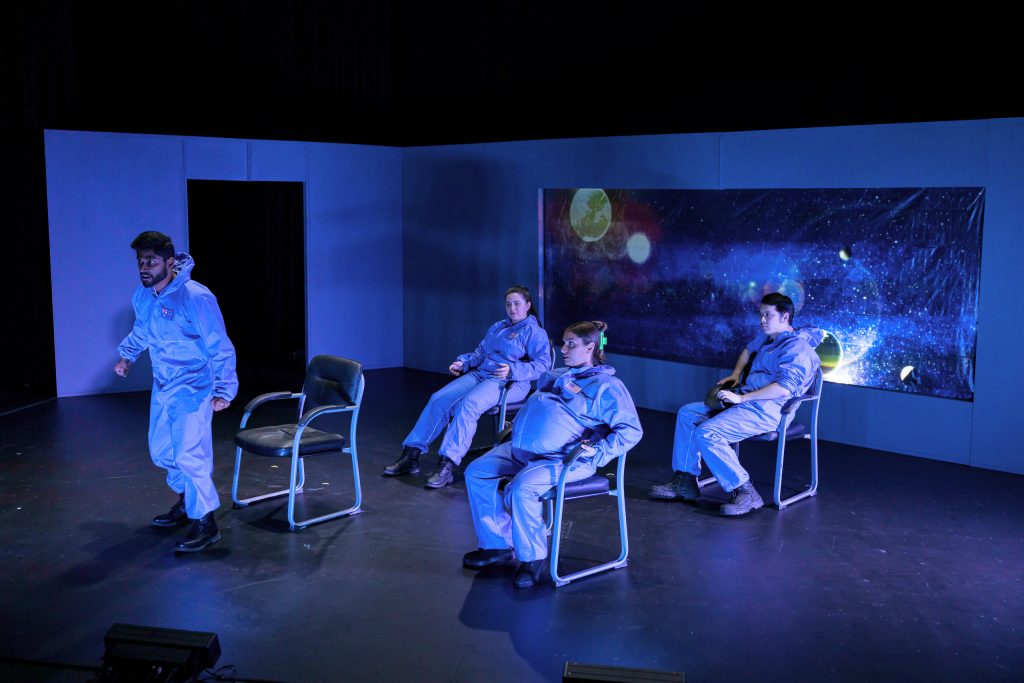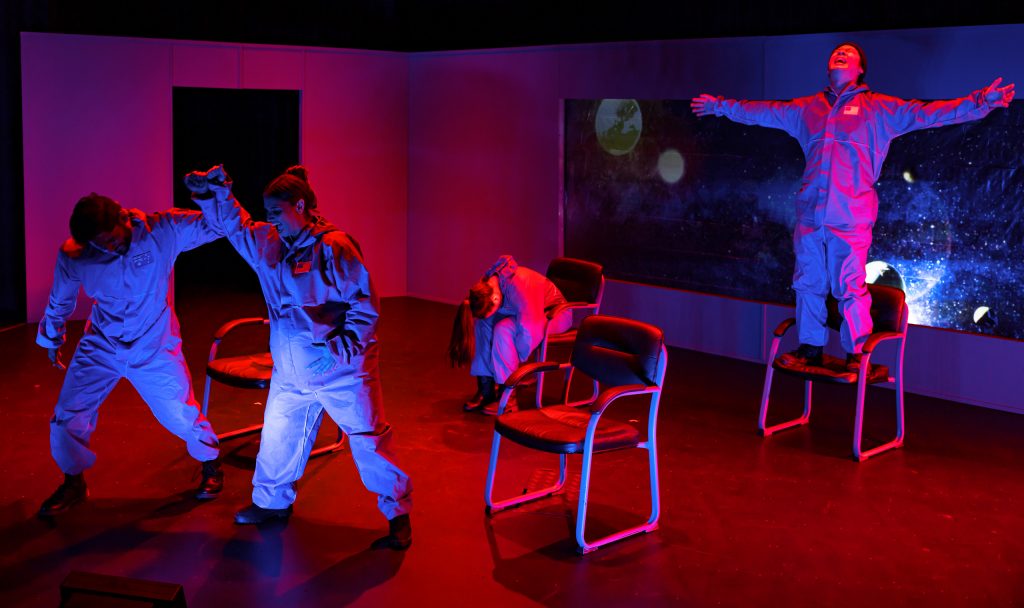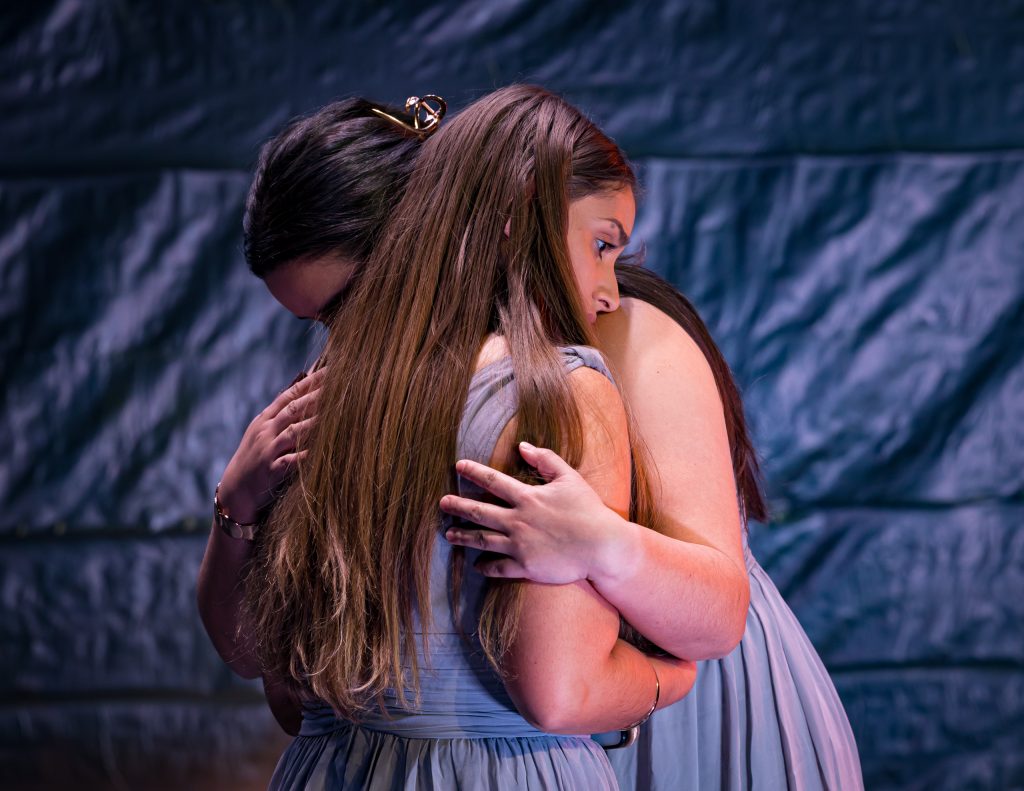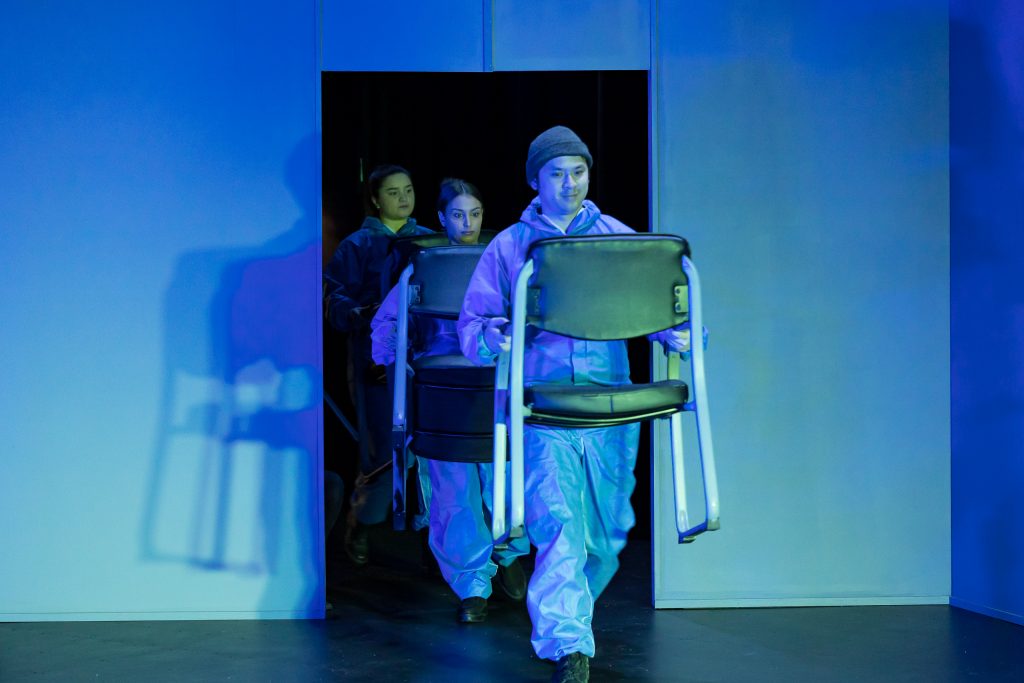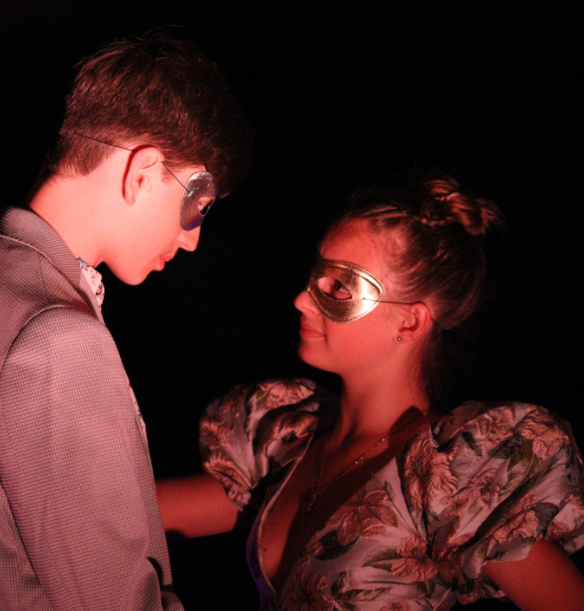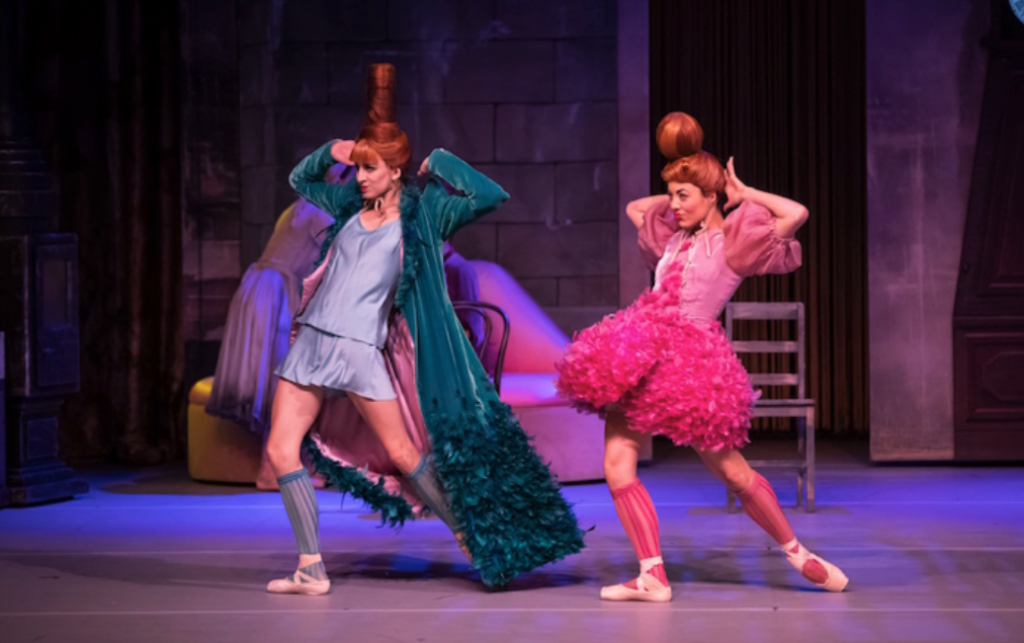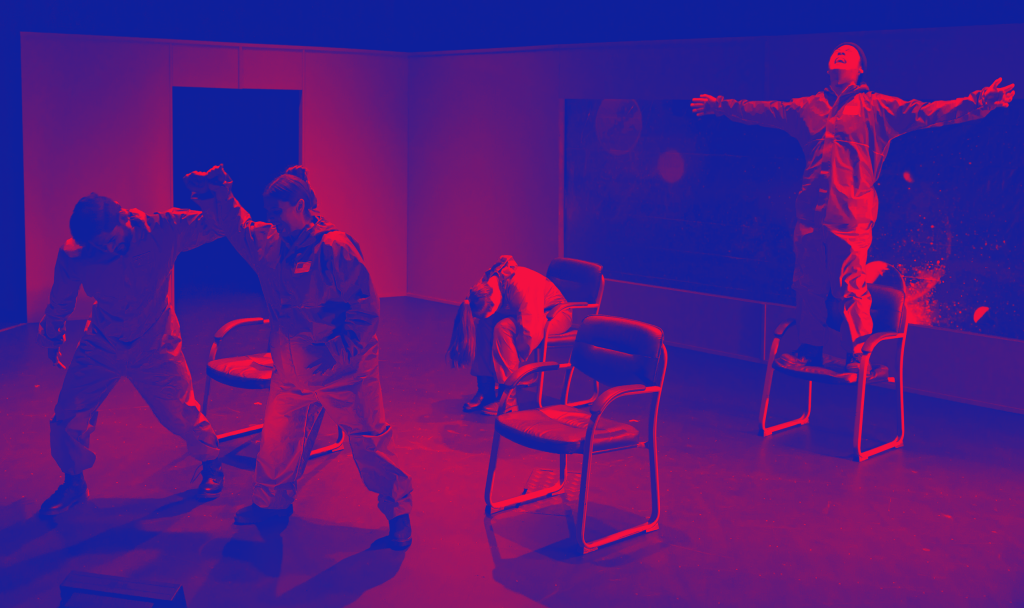
‘Control’ // Observatory Theatre
‘Control’ was confronting.
Reality TV is all kinds of messed up – from the ‘Love Island’ lifestyles to the ‘Big Brother’ games, every manipulation keeps us hooked and each cringe-fest keeps us coming back for more. Now if you can picture the love affairs, dramas and personalities commonly found on our reality TV screens sitting in a spaceship hurtling towards Mars, then you have the opening act of Observatory Theatre’s Queensland premiere production titled ‘Control’.
The new work by Melbourne-based playwright, Keziah Warner, is a humanity-infused sci-fi thriller. Split into three acts, ‘Control’ explores the possibilities of the future through a ‘Big Brother’-style reality TV show. It’s set in space, where there’s a digital bank “safe keeping” memories and an AI learning the intricacies of being a human. There’s a whole lot of existential crisis packed into the 90-minute production, which leaves audiences with a lot of questions.
Not only was ‘Control’ tech-heavy in its narrative plotline, but the production’s technical components played an enormous role in the theatrical space. Sound Designer, Juleece Dawe, was surprisingly busy for a show that didn’t require any microphones. Sound effects were characters unto themselves and I wouldn’t want to be in charge of the soundboard with the number of back-to-back effects that needed to be triggered; many of which queued actor’s lines directly after. Despite the complexity of the production, Dawe rose to the challenge and created an effectively mixed, well-timed soundscape, with apparent flawless execution.
Lighting and visual effects played a similarly large role in ‘Control’ under the helm of Nathaniel Knight. Directional lighting, blue washes and video projections helped to segment the minimal set and create distinct zones for action. The stark nature of the “future” was reflected in the lighting design and played an integral role in setting the mood of the scenes. Video elements were well-executed and seamlessly integrated into the production through the set design. Speaking of, set design by director Timothy Wynn was as simplistic as it was effective. A white wall surrounded the perimeter of the stage and framed action within.
You often imagine the future as a Marty McFly world with flying hoverboards and smiling people, but the reality reflected in ‘Control’ was anything but. All three acts used identical staging, linking the different plots and maintaining a visual theme. One wall was used as a projector screen, which subtly transformed the space between acts and provided a canvas for audio-visual elements.
‘Control’ proved you don’t need complex props, set and costuming to create a sci-fi world. In fact, it is almost more effective when the audience is able to build the world around basic bones and focus on the human perspective of the narrative. Each act switched out the costumes the actors were wearing and the chairs they sat on and that was about it.
Wynn worked holistically to create a production that is artistically consistent. At no point did the action or futuristic facade drop. Wynn created a clear world with very minimal set and props, which is credit to both his skill as a director and the actors he led.
‘Control’ featured snippets of time throughout three generations and required all actors to play multiple characters. The comradery and respect on stage left the audience knowing that everyone had each other’s backs. There were no cringy performances or awkward lines, everything just worked. Triona Calimbayan-Giles was a standout – natural, confident and inhabiting all her characters, she was a joy to watch on stage. Nykita O’Keefe captured the sass in her roles and found authenticity in everything she did. O’Keefe is a generous actress and her energy bounced perfectly off everyone else on stage.
Egan Sun-Bin and Matt Domingo rounded out the cast in supporting roles. Sun-Bin was comedic and landed most of the jokes in the script. Domingo was earnest and considered in his approach and brought gentleness to characters who could have otherwise been too self-centred.
‘Control’ asks audiences to find the ‘why’. Why would humans watch other people get hurt on television for entertainment? Control. Why would we rely on a computer to store all of our most precious memories? Control. And why would we continue feeding artificial intelligence? Control. The realities explored in this play are startlingly close to the lives we may live in the next decade. We’re on that spaceship hurtling towards Mars and it’s too late to turn around now. It’s up to us to decide how we respond and how much we let this world control us.
‘Control’ performed until Sunday, 12 June 2022 at the Multicultural Centre in Kangaroo Point. For more information about the show and other productions, visit Observatory Theatre’s website.
Photography by Geoff Lawrence – Creative Futures Photography.




